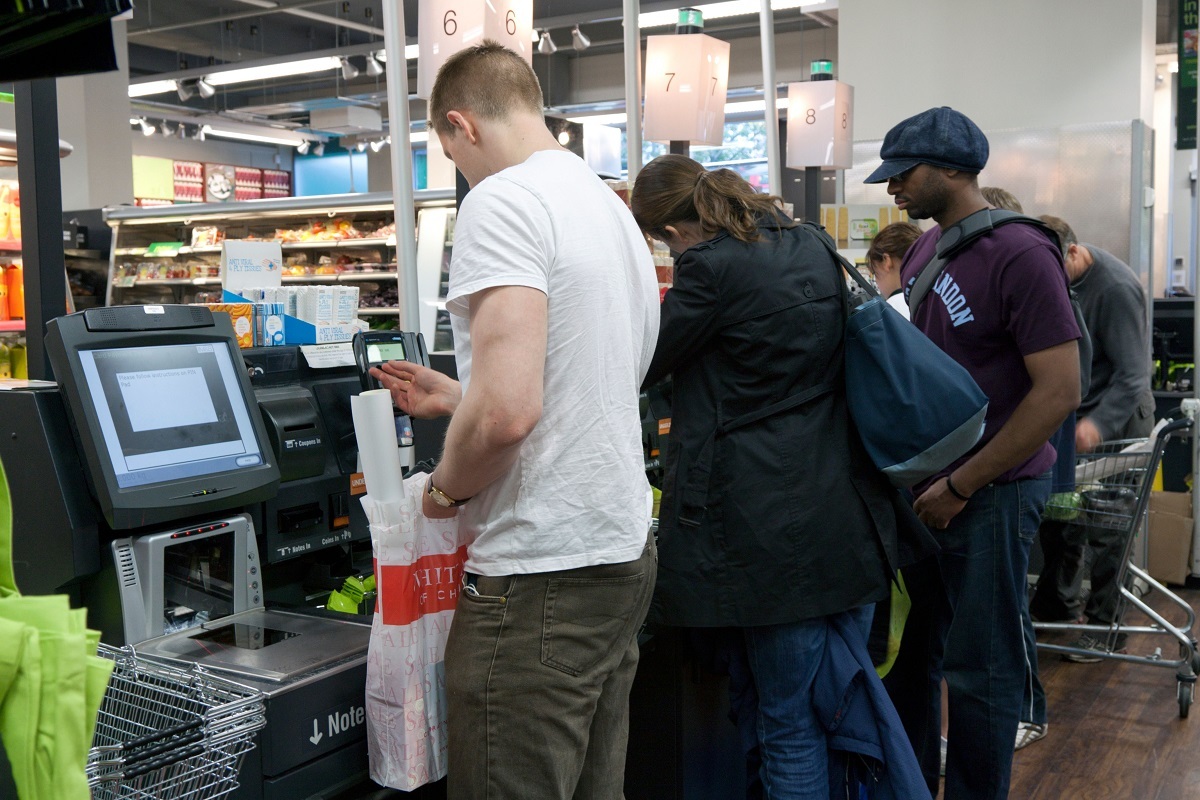
FORGETFUL shoppers are leaving an estimated £2.5 million at self-service tills each year.
Despite flashing lights warning customers notes and coins have been dispensed into a cash tray, they regularly forget to pick the money up.
The practice has become so common that all the big-name supermarkets have put in place policies on what to do with the forgotten cash.
Of those two give it to charity, one hands it over to the police while another gives it back to the customer who handed it in.
Bryan Roberts, an analyst with Kantar Retail, said customers leaving cash and cards behind had become a major problem for supermarkets.
He said: “Even if you take a conservative estimate of £500 per store per year, and say there are 5,000 stores with self-service check-outs with cash back, that’s £2.5m already.
“I don’t think it is outrageous to suggest it would run into the millions of pounds.”
The Sunday Post contacted Sainsbury’s, Asda, Morrisons, Tesco and Waitrose to ask how much cash was left behind by customers every year and what happened to it.
None of the retailers would reveal how much they collected but their policies on dealing with cash left in the machines all vary slightly.
A spokesperson for Sainsbury’s said it kept money for a month and then donated to charity if it was not claimed.
Tesco said the cash was recorded as lost property and if “customers don’t collect their property after a few months it will be given to charity”.
But at Asda the cash is handed over to police after a week.
Its spokesman said: “Our colleagues record any cash found or handed to them as lost property at the customer service desk.
“The money will then be kept for a maximum of seven days and then given to the police if it isn’t collected within this timescale.”
Morrisons is the only one of the major supermarkets which gives money back to the people who find it.
Its spokesman said: “Our self-service check-outs prompt customers to take their change and cash back at the end of every transaction.
“However, any forgotten money found in our self-service checkouts and handed in is kept in lost property for 13 weeks.
“If it is not claimed, after the period of 13 weeks, the customer who found and handed in the money is invited to claim the money.”
However, Waitrose failed to respond despite repeated requests.
Miya Knights, retail technology research director at Planet Retail, is “surprised” there seems to be no industry-wide policy on the problem.
“I would certainly question giving it back to whoever handed it in,” she said.
“I would say most people would think a charity should benefit from other people’s misfortune.”
In response to her claims Morrisons pointed our reporter to the lost property law, which states the finder has the right to claim property, if the owner cannot be traced.
It is estimated there are now more than 42,000 self-scan tills in supermarkets and high street shops across Britain.
But they have provoked a backlash, and in April Morrisons announced it was drafting an extra 1,000 staff on to express check-outs, after its own research found as many as 60% of customers preferred staffed tills.
However, Cathy Barnes, professor of retail innovation at Leeds Beckett University, believes they are here to stay.
She said: “I think it is not that customers mind using them, it is that the user experience on the ones that are there has not been well thought through.
“With new technology the first thing that comes in is something that works and then it is something people want to use.
“I think we are going down that road now with self-service tills.”
Morrisons follows lost property guidelines but there appears to be no hard and fast rules on what supermarkets should do with forgotten cash.
We contacted the Financial Conduct Authority and the Competition and Markets Authority but both organisations told The Sunday Post the issue does not fall within their remits.Case StudyFORGETTING to collect your cash when you’re in a rush is all too easy, according to one shopper.
Jenny Simpson, 33, from Kendal, Cumbria, got cash back from a self-service till but didn’t realise she hadn’t collected it until it was too late.
She said: “I was grabbing lunch in a hurry and the self-scan till automatically gives the option of cash back if you pay by card. I decided to get £30 to save me queuing for the ATM but, in a rush, I took my card and groceries and left the cash behind.
“It’s easy to do if you are distracted.
“I didn’t realise until I opened my purse again the next day.
“I went back to the store and the staff were helpful, but no-one had handed in £30 that day.
“They had a big book with lots of entries of lost cash, so it seems to be a common mistake.
“Someone was more unfortunate than me and had forgotten £50.
“I think the store should keep it for a month or two and then hand it over to charity if it’s not claimed.”

Enjoy the convenience of having The Sunday Post delivered as a digital ePaper straight to your smartphone, tablet or computer.
Subscribe for only £5.49 a month and enjoy all the benefits of the printed paper as a digital replica.
Subscribe